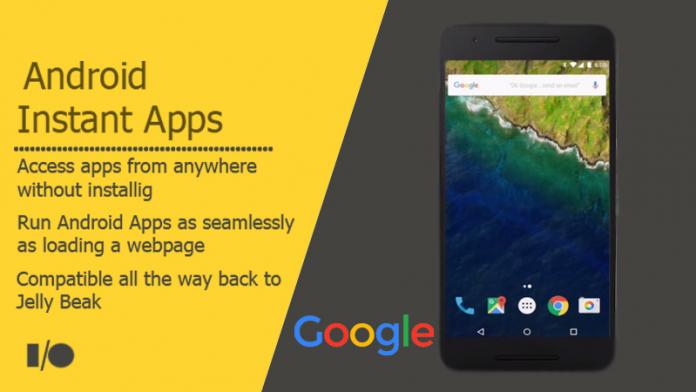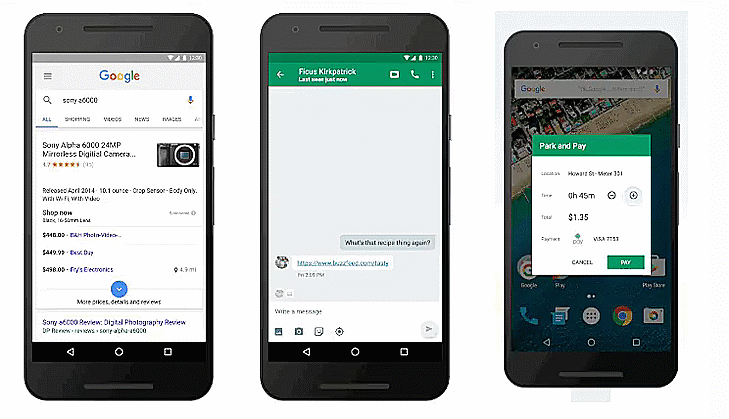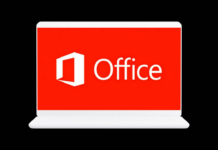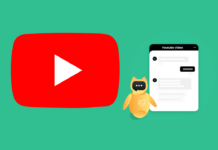It is very easy and fast to navigate a website, but apps offer a better experience for the users. Now, the tech giant Google has found a new way to combine both.
On Wednesday, the tech giant Google showed its Android Instant Apps, a new way to convert any Android application into a Web address.
Google’s Instant Apps Lets You Run Apps Without Any Installation
Suppose you want to compare the price of a camera on a website. In the future, you can click on any link, which will take you immediately to the shopping cart within the company’s mobile app, even if you have the app installed on your device.
The tech giant Google’s product manager said, “We have evolved Android apps so they can be used without requiring the user to install”.
Instant Apps eliminate the differences between the websites and apps that require the download; hence, it has the potential to transform the current experience of the mobile Web.
Providing a part of the experience of the apps could motivate people to download applications they would otherwise have ignored.
An immediate benefit of Instant Apps is mobile transactions. Suppose you buy a pair of tickets to a concert; you might not want to download the app. But perhaps you do not want to put the information on your credit card on a suspicious website.
Instant Apps takes you to the app where you can make your payment with a single click. If your credit card is registered with the mobile payment system Android of Google Pay, then you will complete the transaction with a touch.
Last week, the tech giant Google demoed the Instant Apps at its offices in Mountain View, California. The company is also working with Disney to create an “Instant Apps” app version of Disneyland that checks the wait time to raise their games.
Other partners include the Medium blogging site, the site Zumper homes found, the Buzzfeed recipes app, and app store photographic equipment B & H Photo.
Ficus Kirkpatrick, an engineer in charge of Instant Apps, says, “The technology behind Instant Apps is very simple.
The developer of an app will be able to divide their application into modular pieces of about one megabyte each so that Google can quickly download the correct piece on an Android phone and run that piece as if the app was installed on that device.
Apps can request user permission to share your location, open your phone’s camera, or use information already stored in the device to register the app”.
Hence, Ficus Kirkpatrick, an engineer in charge of Instant Apps, added that “Instant Apps does not require the latest version of Android since it works with all the versions from Android Jelly Bean, which came to market in 2012”.
For now, Instant Apps is limited previous half dozen Google software partners and will gradually reach more. Google plans to allow early users to use the first Instant Apps this year.




